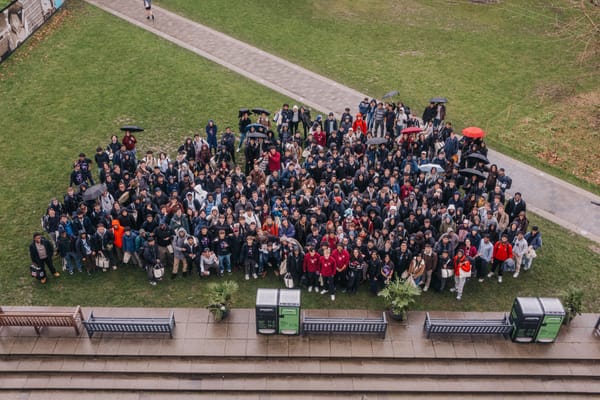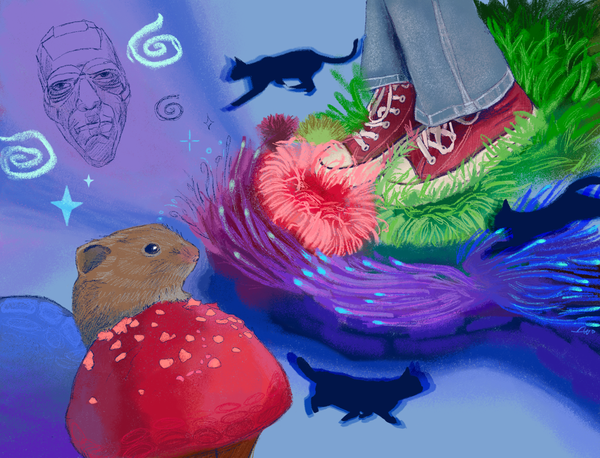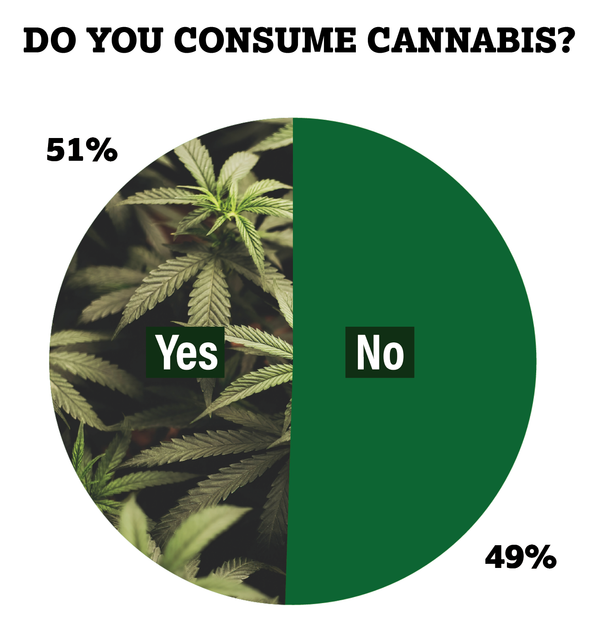A Rainbow Chemist at Imperial

I often find myself faced with questions from friends and colleagues such as “What is it like to be a gay man at uni?” or “How do others perceive you once they find out that you are gay?”. I used to ask the same questions during my undergraduate studies at UCL, prior to starting my MRes+PhD course in Chemical Biology in the Department of Chemistry here at Imperial. I wondered whether I would be accepted by my future colleagues in research and by my supervisors. I was constantly thinking about the potentially negative impact revealing my sexuality could have on my research and future career prospects. I anxiously asked myself “Is it worth keeping your sexuality a secret?”. Having been here for a year and half now, I am glad to say that the answer to this question is a resounding “NO!”.
After coming to Imperial, I was elated to find that the LGBT+ community is well represented all around college. Support groups such as IQ and Imperial 600 do a great deal of work by organising seminars, campaigns and events to raise the visibility of the LGBT+ community around college and create a more welcoming environment. One of the campaigns organised by Imperial 600 that I absolutely love is the distribution of Imperial College London branded rainbow lanyards to their members, which is a fantastic way to raise the visibility of the LGBT+ community at Imperial and you get a strange sense of comfort when you see one of the colourful lanyards coming towards you! Imperial also observes LGBT history month which provides a great opportunity to find out more about LGBT+ history and the LGBT+ community outside of college.
I am often asked about how my supervisors perceive me after finding out about my sexuality, and if their attitude changed after learning about it. While this is something I have not explicitly discussed with them, it has been rather like an open secret all along, and I never felt in any way discriminated against by them or members of my research groups. I have always felt that as long as your science is good, people will judge you on the merits of your work and not because of your sexuality, and I find that this is very much the case here at Imperial.
As for future career prospects, it has been very reassuring to see so many openly LGBT+ members of staff turning up to the Imperial 600 meetings. In academia at least, my view is that being gay does not play a role in determining whether you are successful or not, it is all about one’s own ideas, personality and determination. Tom Welton’s truly inspiring ascent, the first openly gay academic to hold the position ‘Dean of the Faculty of Natural Sciences’ at Imperial, is the ultimate proof. During my MRes year, I had the opportunity to visit several chemical/pharmaceutical companies in industry. I was pleasantly surprised to see many of them discussing the steps they were taking against discrimination of LGBT+ people in the workplace and what they were doing to promote inclusivity and acceptance among their employees.
I feel very lucky to be where I am, and I am highly appreciative of the support that I have received from many people around Imperial, both staff and students, postgraduates and undergraduates. For many of us in the LGBT+ community, finding yourself and accepting yourself for the person you really are can be a long and scary journey, and I am glad that Imperial, through its policies, societies and volunteer-led networks is reaching out to LGBT+ people more than ever before.
This is just one perspective of a postgraduate gay man from the Department of Chemistry and perhaps isn’t representative of everyone in the LGBT+ community here at Imperial – LGBT people are truly as diverse as the colour spectrum of the rainbow and while my experiences as a gay man have been overwhelmingly positive, others may have a completely different story to tell. I hope that more and more students representing different parts of the LGBT+ community are willing to share their stories as this allows us to gauge whether we are moving in the right direction and informs us what we can do to change things for the better, for everyone!






